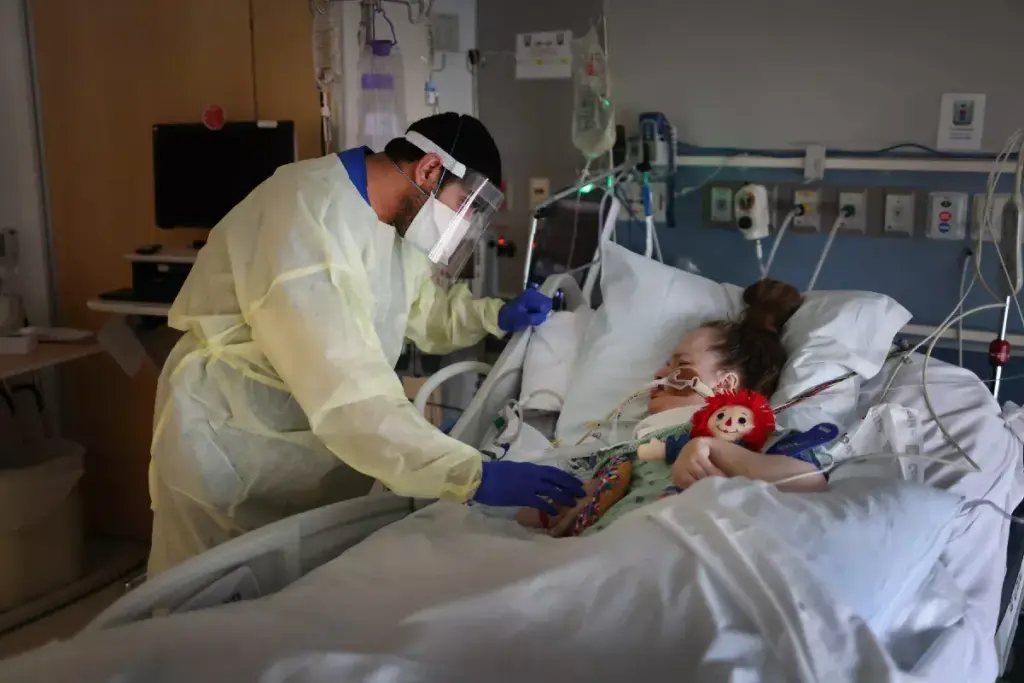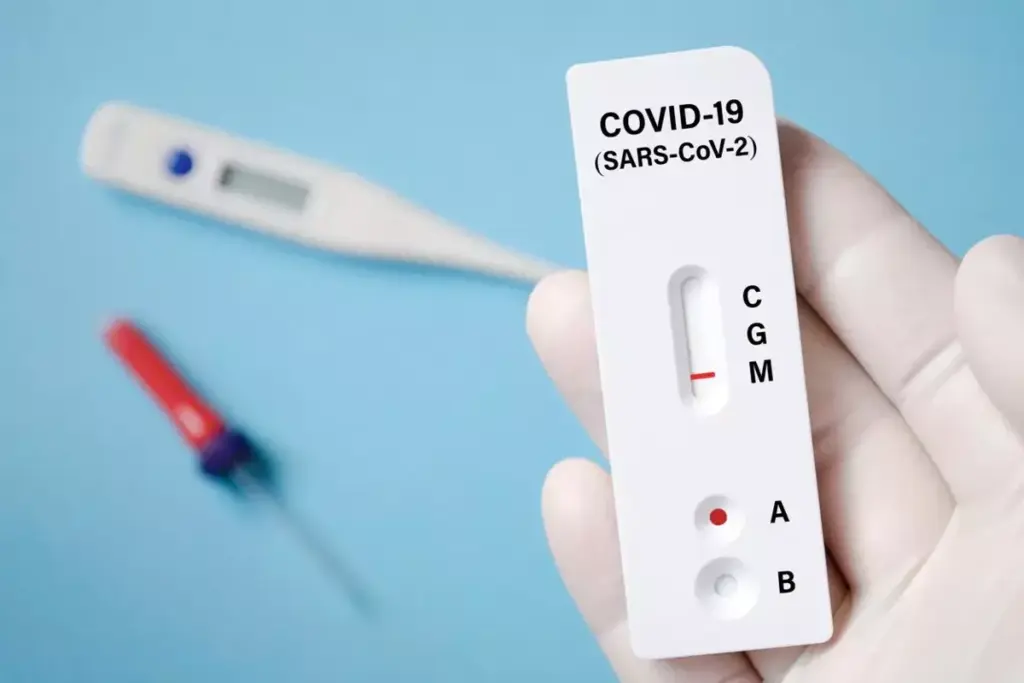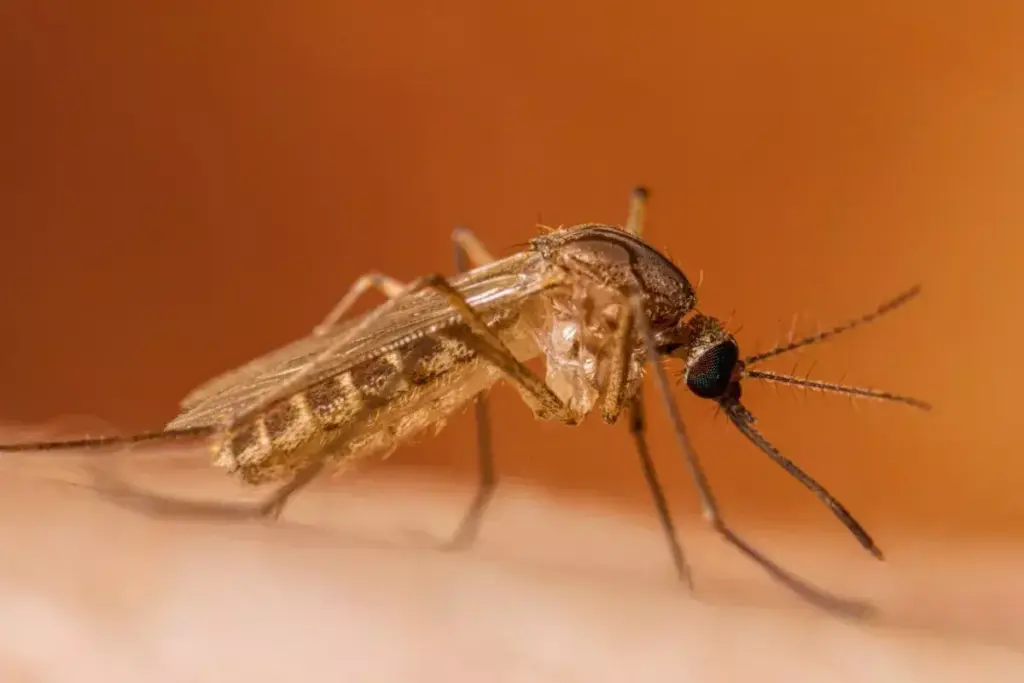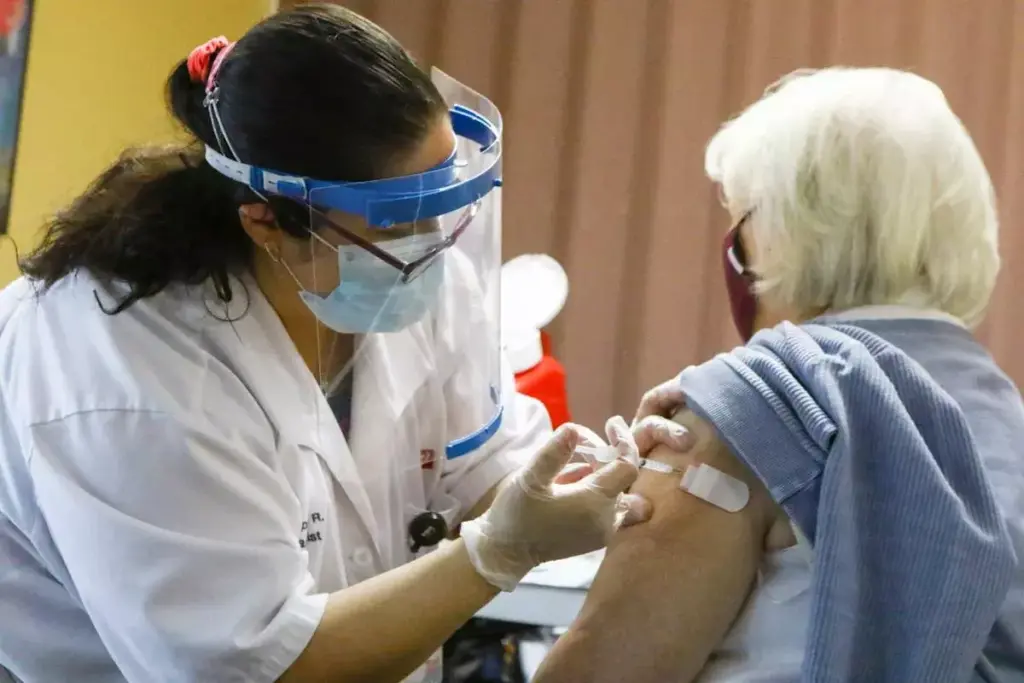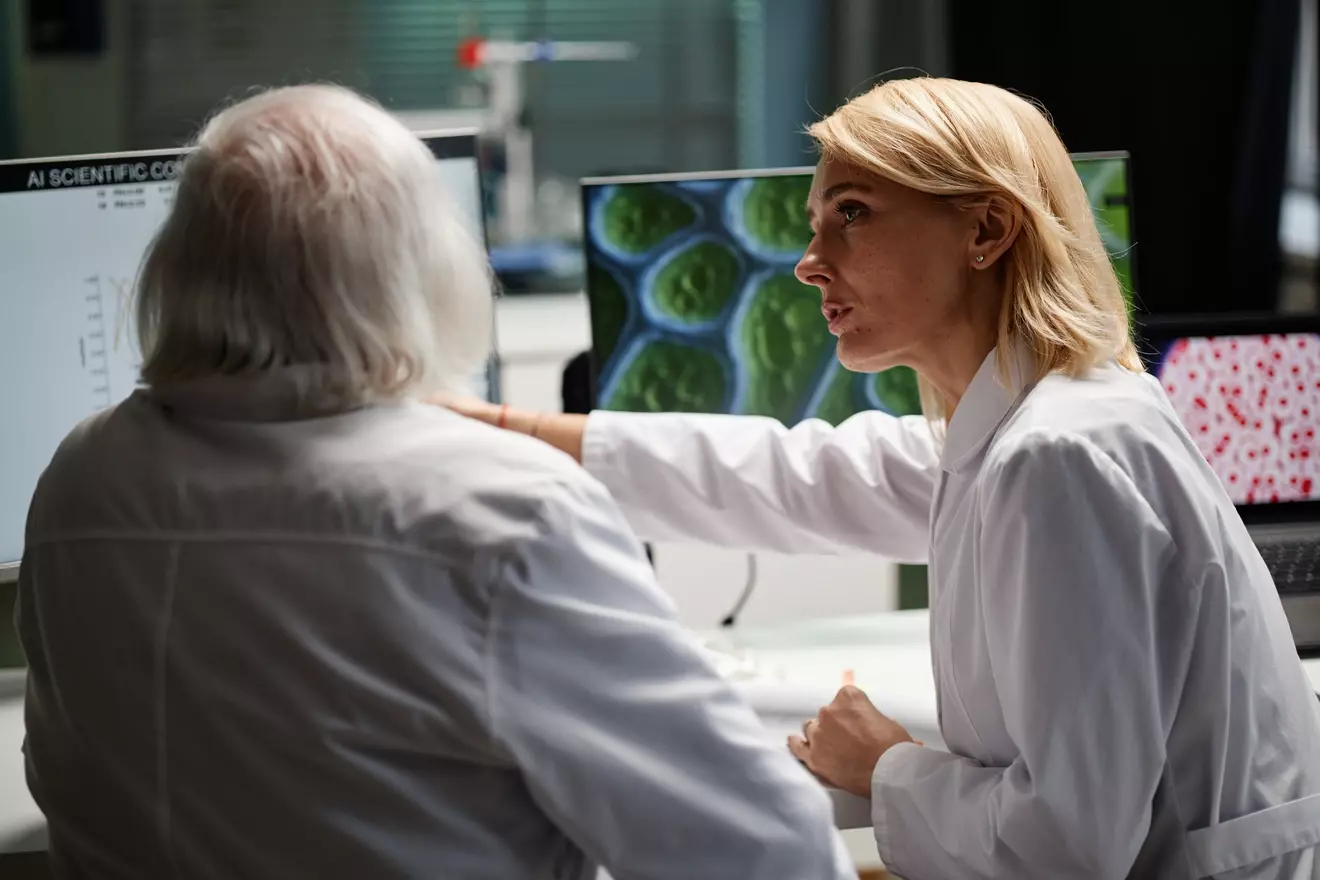
At Liv Hospital, we use top-notch targeted immunotherapies. These treatments rely on antibody science to battle cancer cell growth. We focus on monoclonal antibodies, special proteins that find and stick to cancer cells. This action starts an immune response that stops tumors from growing and living.
We use different kinds of targeted immunotherapies to protect against cancer. These include naked mAbs, conjugated antibodies, and bispecific antibodies. These new treatments have shown great promise in tests. They offer hope to patients looking for the best in cancer care.
Key Takeaways
- Monoclonal antibodies are engineered to target specific cancer cell markers.
- Targeted immunotherapies trigger immune responses to inhibit tumor growth.
- Liv Hospital offers world-class cancer treatment using antibody science.
- Various types of antibodies are used, including naked mAbs and bispecific antibodies.
- These treatments have shown significant promise in clinical trials.
The Science Behind Antibodies in Cancer Treatment
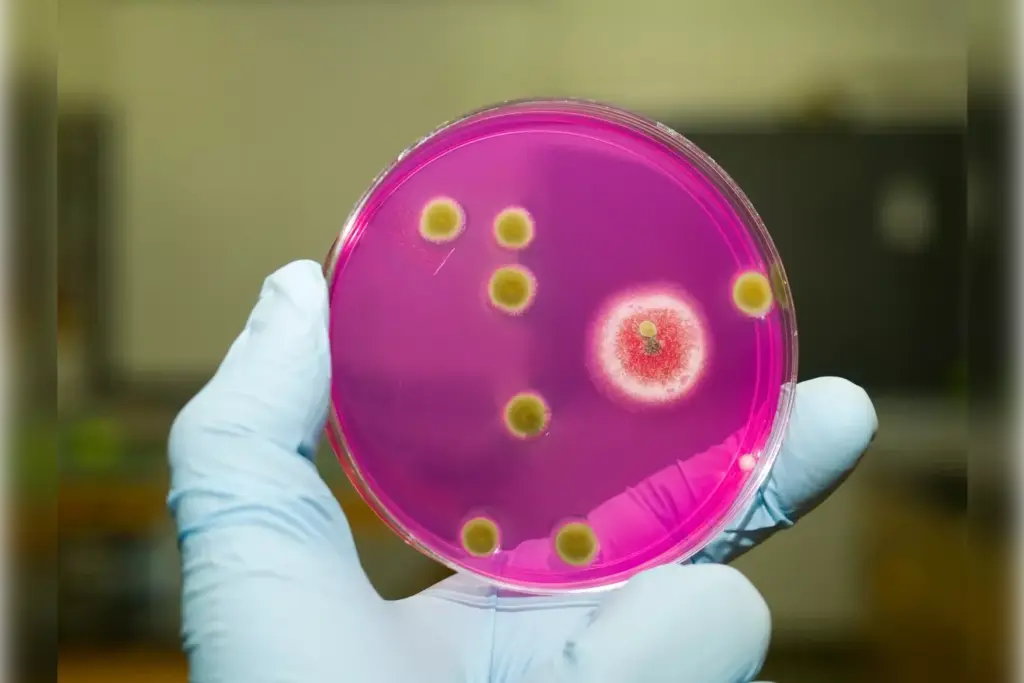
Understanding how antibodies help in cancer treatment is key to making new therapies. Antibodies, or immunoglobulins, are proteins made by our immune system. They find and stick to specific targets, like cancer cells.
What Are Antibodies and How Do They Function?
Antibodies are Y-shaped proteins that are vital to our immune system. They are made by B cells when they see foreign substances, called antigens. Each antibody is made to stick to a specific antigen, helping to get rid of it.
In cancer, antibodies are made to target specific markers on cancer cells. This helps to get rid of the bad cells.
Antibodies work in several ways:
- They can directly kill cancer cells by sticking to them and marking them for destruction.
- They can also activate immune cells, like Natural Killer (NK) cells, to destroy cancer cells through a process called Antibody-Dependent Cellular Cytotoxicity (ADCC).
- They can block signals that help cancer cells grow and survive.
The Role of Antibodies in Natural Immune Response
In our natural defense, antibodies are very important. They help fight off pathogens and abnormal cells, like cancer cells. NK cells are key in this fight, recognizing and killing infected or cancerous cells. Antibodies help by sticking to these cells, making it easier for NK cells and other immune cells to find and destroy them.
Antibodies play a big role in fighting cancer by:
- Recognizing and sticking to cancer cell markers.
- Starting immune responses to get rid of cancer cells.
- Helping with immunotherapy by boosting or copying the body’s natural antibody response against cancer.
How Antibodies Create and Protect Against Cancer Cell Growth
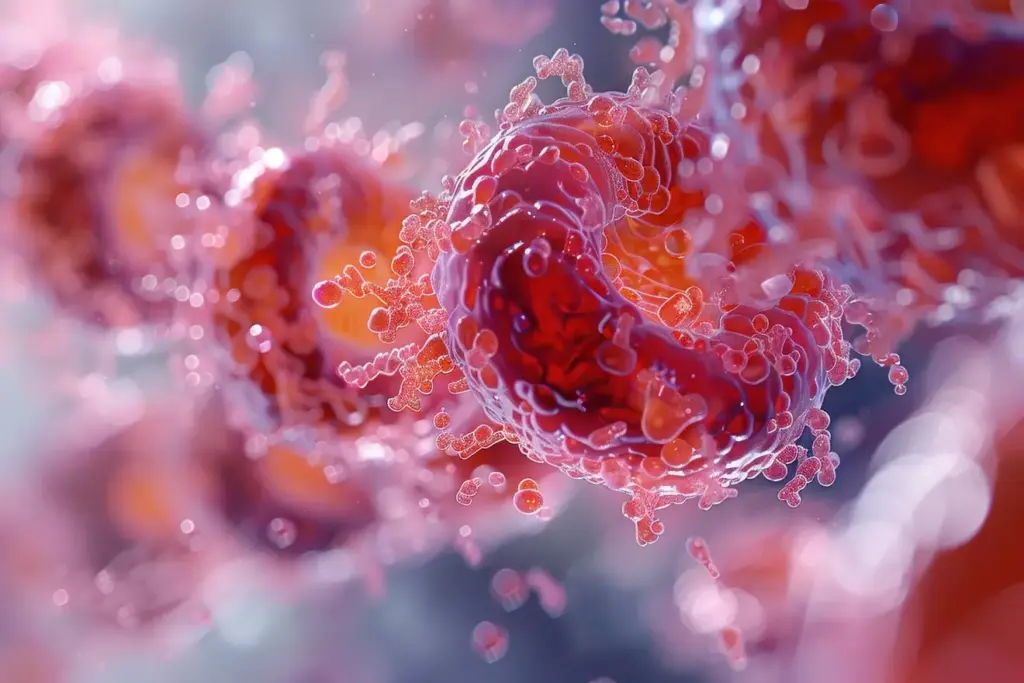
Learning how antibodies fight cancer is key to better treatments. Antibodies play a big role in targeted immunotherapy. They offer hope in the fight against cancer.
The Cancer-Immunity Cycle
The cancer-immunity cycle is complex. It involves the immune system spotting cancer cells. Antibodies help by marking these cells for destruction.
The cycle includes:
- Release of antigens from cancer cells
- Presentation of these antigens to the immune system
- Activation of immune cells, such as T cells, to recognize and attack cancer cells
- Elimination of cancer cells through various immune mechanisms
Antibody Recognition of Cancer Cell Markers
Antibodies find specific markers on cancer cells. These markers are called tumor-associated antigens. This is a key step in destroying cancer cells.
Monoclonal antibody immunotherapy uses this to target cancer cells. The success of this depends on the antibody’s specificity and its ability to bring in immune cells. Naked mAbs can kill cells directly or mark them for destruction.
“The specificity of monoclonal antibodies for tumor antigens makes them ideal candidates for targeted cancer therapies.”
By improving our understanding of the cancer-immunity cycle and antibody recognition, we can make antibody for cancer treatment more effective.
The Evolution of Monoclonal Antibodies in Cancer Therapy
Monoclonal antibodies have changed a lot in cancer treatment. They now target cancer cells without harming normal tissues. This has greatly improved cancer treatment.
From Discovery to Clinical Application
In the 1970s, scientists first found monoclonal antibodies. They made these antibodies by mixing a cancer cell with an antibody-producing cell. This made it possible to create lots of antibodies that could target specific cells.
At first, these antibodies came from mice and could cause immune reactions. To fix this, scientists made them more like human antibodies. This made them safer for people.
Humanization changed the antibodies so they were less likely to cause immune problems. This was a big step towards using them in cancer treatment.
Engineering Antibodies for Enhanced Efficacy
Scientists have kept working on making monoclonal antibodies better. They’ve found ways to make them work better, like removing fucose from the antibody’s Fc region. This helps them kill cancer cells more effectively.
Another big step was creating antibody-drug conjugates (ADCs). These link antibodies to drugs that kill cancer cells. This way, the drugs only go to the cancer, not healthy cells.
| Technology | Description | Benefit |
|---|---|---|
| Humanization | Replacing murine sequences with human antibody sequences | Reduced immunogenicity |
| Afucosylation | Removing fucose from the Fc region | Enhanced ADCC |
| Antibody-Drug Conjugates (ADCs) | Linking antibodies to cytotoxic drugs | Targeted delivery of potent drugs |
Monoclonal antibodies have made a big difference in fighting cancer. They offer hope to many patients. As scientists keep working, we’ll see even better treatments with fewer side effects.
Way 1: Blocking Cancer Cell Signaling Pathways
Antibodies play a key role in fighting cancer by blocking the signals that cancer cells use to grow. Antibody treatment for cancer has shown great promise in stopping these signals. This helps to slow down tumor growth.
How Naked mAbs Inhibit Growth Signals
Naked monoclonal antibodies (mAbs) are made to target specific proteins on cancer cells. By attaching to these proteins, they block the signals that tell cancer cells to grow and divide. This targeted approach helps protect healthy cells, reducing side effects.
For example, some naked mAbs target the HER2 protein found in some breast cancers. By attaching to HER2, these antibodies stop the signals that tell cancer cells to grow. This slows down cancer cell growth.
Clinical Examples of Signal-Blocking Antibodies
Several signal-blocking antibodies are used in treatment. Trastuzumab (Herceptin) is one, used for HER2-positive breast cancer. It blocks the HER2 protein, stopping tumor growth signals. Clinical trials show it improves survival rates.
Cetuximab (Erbitux) is another example, targeting the EGFR protein. By blocking EGFR, it stops the growth signals in certain cancers of the colon and head and neck.
“The development of monoclonal antibodies has revolutionized the treatment of various cancers, giving new hope to patients worldwide.”
In summary, antibodies to treat cancer work by blocking the signals that cancer cells use to grow. Targeted therapy is a promising way to fight cancer by stopping these signals.
Way 2: Activating Immune Cell Responses Against Tumors
Immune cell activation is key in fighting cancer with antibodies. These therapies can activate immune cells to attack tumors. They do this through two main ways: Antibody-Dependent Cellular Cytotoxicity (ADCC) and Complement-Dependent Cytotoxicity (CDC).
Antibody-Dependent Cellular Cytotoxicity (ADCC)
ADCC works by getting immune cells to destroy cancer cells. An antibody binds to a tumor cell’s surface. Then, immune cells like Natural Killer (NK) cells recognize it and attack.
This attack leads to the tumor cell’s destruction. Studies show ADCC is key to some antibodies’ success.
Key aspects of ADCC include:
- The binding of antibodies to tumor cell antigens
- Recognition by immune effector cells via Fc receptors
- Activation of immune cells to release cytotoxic granules
- Lysis of tumor cells
Complement-Dependent Cytotoxicity (CDC)
CDC is another way antibodies fight cancer. When antibodies bind to tumor cells, they start the complement system. This system creates pores in the tumor cell, killing it.
As immunotherapy experts say, CDC is vital in some antibody therapies.
The process of CDC involves:
- Antibody binding to tumor cell surface antigens
- Activation of the complement system
- Formation of the membrane attack complex
- Tumor cell lysis
Experts say, “Antibodies can kill cancer cells through CDC and ADCC. This is a targeted way to fight cancer, making treatments more effective.” These therapies offer hope for cancer patients.
Way 3: Targeted Delivery of Cytotoxic Agents
Targeted delivery of cytotoxic agents is a big step forward in cancer treatment. We use antibody-drug conjugates (ADCs) to send strong drugs right to cancer cells. This way, we protect healthy tissues from harm. It’s a key part of today’s cancer therapy.
Antibody-Drug Conjugates (ADCs)
ADCs are made to be both specific and powerful. They link a drug to a monoclonal antibody that finds cancer cells. This means the drug goes straight to the cancer, not all over the body.
ADCs have three main parts: the antibody, the drug, and the linker. The antibody finds the cancer cells. Then, the drug is released inside the cells, thanks to the ADC breaking down.
Conjugated Monoclonal Antibodies in Clinical Practice
Conjugated monoclonal antibodies are working well in real-world treatments. For example, studies show they can target and treat certain cancers. They do this by focusing on specific markers on cancer cells.
The benefits of these antibodies include:
- They find cancer cells very precisely.
- They bring strong drugs right to the cancer cells.
- They cause fewer side effects than regular chemotherapy.
In summary, using ADCs to target cancer cells is a vital strategy. It combines the precision of monoclonal antibodies with the strength of drugs. This makes treatments more effective and safer for patients.
Way 4: Dual-Targeting with Bispecific Antibodies
Bispecific antibodies are a big step forward in fighting cancer. They work by targeting two different parts of cancer cells at once. This helps the body’s immune system fight tumors better.
Bridging Cancer Cells and Immune Effectors
Bispecific antibodies are made to grab onto two different things. They bind to a marker on cancer cells and another on immune cells. This lets them bring immune cells close to cancer cells for a stronger fight against tumors.
By getting immune cells close to cancer, bispecific antibodies help the body attack cancer cells better. This has shown great promise in tests, with some patients seeing big drops in tumor size.
Advantages Over Traditional Monoclonal Antibodies
Bispecific antibodies have big upsides over old-school monoclonal antibodies. They can hit two targets at once, making treatment more precise. They also get immune cells to work against cancer when they’re near it, leading to a stronger fight against tumors.
Also, bispecific antibodies can get past some of the problems with monoclonal antibodies. They can reach deep into tumors and avoid resistance. This means they might keep fighting cancer for longer.
In short, bispecific antibodies are a big leap in cancer treatment. They help the immune system fight cancer better and have perks over older treatments. They look like a bright hope for cancer patients.
Way 5: Checkpoint Inhibition for Enhanced Immune Response
Checkpoint inhibition is a key strategy in cancer treatment. It boosts the body’s immune response against tumors. This method has changed the field of immuno-oncology, opening new ways to fight cancer.
Releasing the Brakes on the Immune System
The immune system has ways to stop itself from attacking the body’s cells. These are called checkpoints. Cancer cells use these to hide from the immune system. Checkpoint inhibitors work by removing these brakes, letting the immune system fight cancer better.
One major checkpoint targeted is the PD-1/PD-L1 pathway. Cancer cells often show PD-L1, which stops T cells from working. By blocking this, checkpoint inhibitors help T cells attack cancer cells again.
Major Checkpoint Inhibitors in Clinical Practice
Several checkpoint inhibitors are now used in treatment. They include antibodies for PD-1, PD-L1, and CTLA-4.
| Checkpoint Inhibitor | Target | Approved Cancers |
|---|---|---|
| Pembrolizumab | PD-1 | Melanoma, NSCLC, Head and Neck Cancer |
| Nivolumab | PD-1 | Melanoma, NSCLC, Renal Cell Carcinoma |
| Atezolizumab | PD-L1 | NSCLC, Bladder Cancer |
| Ipilimumab | CTLA-4 | Melanoma |
These checkpoint inhibitors have shown great results in trials. They have improved survival and response rates in advanced cancer patients. Research is ongoing to find new uses and combinations of these inhibitors.
The Global Landscape of Cancer Antibody Therapeutics
Antibody therapeutics are changing how we treat cancer. More therapies are being approved, and research is growing. We’ll look at the current state of cancer antibody therapeutics worldwide. This includes market trends, approved treatments, and the importance of research antibodies.
Market Growth and Approved Therapies
The market for cancer antibody therapeutics is growing fast. This growth is due to more cancer cases, better antibody technology, and a need for targeted treatments. Many antibody-based treatments are now approved for different cancers.
New cancer treatments using antibody therapeutics are showing great promise in trials. The approval of these therapies is a big step forward in cancer treatment. It shows how much we’ve learned about cancer and how our immune system fights it.
We’re moving towards more personalized and targeted treatments. Antibody therapeutics are key in this shift.
Research Antibodies Supporting Drug Development
Research antibodies are vital in creating new cancer therapies. They are used from the start of research to clinical trials. These antibodies help find and validate targets, understand disease mechanisms, and develop diagnostic tests.
Research antibodies have sped up finding new therapeutic targets and developing new treatments. They give scientists specific tools to study complex biological processes. This helps find new ways to treat cancer.
In conclusion, the global landscape of cancer antibody therapeutics is marked by fast market growth, more approved therapies, and ongoing research. This research is driven by research antibodies. As we learn more about cancer and the immune system, antibody therapeutics will keep leading in cancer treatment.
Diagnostic Considerations: Can Antibodies in Blood Mean Cancer?
Exploring cancer diagnosis, antibodies in blood play a key role. Their presence can show abnormal immune activity, needing more tests. We’ll look at how to understand antibody presence in tests and when more checks are needed.
Interpreting Antibody Presence in Diagnostic Tests
Antibodies in blood tests are important for cancer diagnosis. They show the body’s fight against cancer cells. But, they don’t mean cancer for sure. We must look at the type of antibodies and their link to cancer.
Some autoantibodies are linked to specific cancers. They can show up years before cancer is found, helping in early detection. Yet, antibodies alone are not enough for a diagnosis.
When Further Investigation Is Necessary
If cancer-linked antibodies are found, more tests are needed. This might include more blood tests, scans, or biopsies. The choice for more testing depends on the patient’s health, risk factors, and first test results.
We need a full understanding of the patient’s health and immune system. This ensures accurate diagnoses and the right treatment.
- Presence of specific antibodies can indicate cancer risk.
- Further diagnostic tests are often necessary to confirm cancer.
- A complete approach to diagnosis is key.
Conclusion: The Future of Antibody-Based Cancer Therapies
Antibody-based cancer therapies are getting better, giving patients new hope. The focus on targeted immunotherapy is key. It has shown great promise in making treatments more effective.
Researchers are using antibodies to create treatments that only attack cancer cells. This means less damage to healthy tissues. New types of antibodies, like monoclonal antibodies, are leading to exciting breakthroughs in cancer treatment.
We’re on the path to better patient results and more use of these therapies. The work going on now could change how we fight cancer. It brings hope to those dealing with this disease.
What are antibodies and how do they function in cancer treatment?
Antibodies are proteins made by our immune system. They find and stick to specific targets, like cancer cells. In cancer treatment, they can be made to target cancer cells, helping to get rid of them.
How do monoclonal antibodies work in cancer therapy?
Monoclonal antibodies are made to find and attack specific cancer cell markers. They stop cancer cells from growing and surviving. They do this by blocking signals to cancer cells and by helping immune cells fight cancer.
What is the role of naked mAbs in cancer treatment?
Naked mAbs are monoclonal antibodies that aren’t mixed with other agents. They work by stopping cancer cells from getting the signals they need to grow. This helps slow or stop tumor growth.
How do antibody-drug conjugates (ADCs) work in cancer treatment?
ADCs are monoclonal antibodies that carry a toxic agent to cancer cells. This helps kill cancer cells without harming healthy cells. It makes treatment more effective.
What are bispecific antibodies and how do they work?
Bispecific antibodies target two specific antigens at once. They connect cancer cells to immune cells. This boosts the immune system’s fight against tumors.
Can antibodies in blood indicate cancer?
Some antibodies in blood can be linked to cancer. But, it’s not a sure sign. More tests are needed to figure out why these antibodies are there.
What is checkpoint inhibition and how does it work in cancer treatment?
Checkpoint inhibition is a type of immunotherapy. It lets the immune system attack cancer cells better. Checkpoint inhibitors are used to treat many cancers.
How do research antibodies support drug development?
Research antibodies are key in drug development. They help us understand cancer, test new treatments, and find new targets for treatment.
What is the future of antibody-based cancer therapies?
The future of antibody-based cancer therapies looks bright. New research and development are coming up with better treatments. This includes new types of targeted immunotherapies.
How do targeted immunotherapies improve cancer treatment outcomes?
Targeted immunotherapies, like monoclonal antibodies and bispecific antibodies, offer more precise and effective treatments. They reduce harm to healthy cells and boost the immune system’s fight against tumors.
References
- Cancer Research UK. Monoclonal antibodies. https://www.cancerresearchuk.org/about-cancer/treatment/targeted-cancer-drugs-immunotherapy/monoclonal-antibodies
- (Authors). Title. PMC. https://pmc.ncbi.nlm.nih.gov/articles/PMC7551545/
- National Cancer Institute. Monoclonal Antibodies (Immunotherapy). https://www.cancer.gov/about-cancer/treatment/types/immunotherapy/monoclonal-antibodies
- Frontiers in Immunology. Title. https://www.frontiersin.org/journals/immunology/articles/10.3389/fimmu.2023.1129323/full
- Nature Communications / related journal. Title. https://www.nature.com/articles/s41392-021-00868-x




